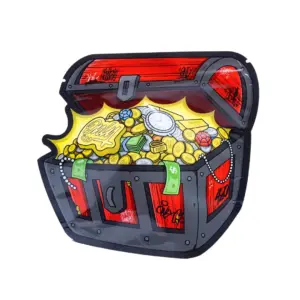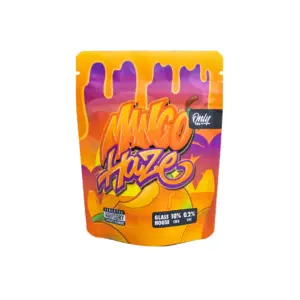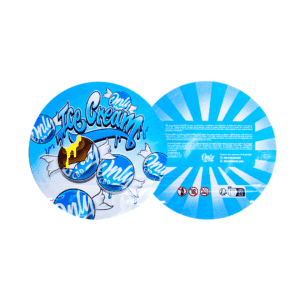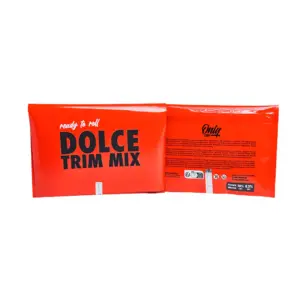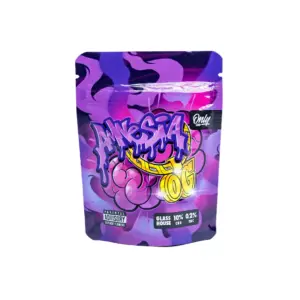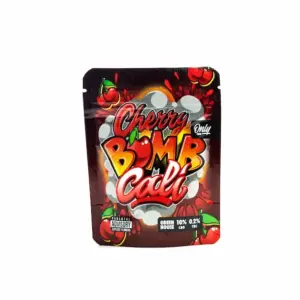A new cannabinoid is beginning to invade the market: Hexahydrocannabinol. We'll talk about it today: What is HHC? What are its effects? What is it used for? You're probably already familiar with CBD and THC or THCV, which are the most well-known compounds in cannabis, but they're not the only ones.
What is HHC (hexahydrocannabinol)?
Although this cannabinoid is very new to the market, the truth is that it was created in 1944 by the American chemist Roger Adams, who for the first time added hydrogen molecules to the cannabinoid Delta-9 THC (a process known as hydrogenation), thus creating HHC or hexahydrocannabinol.
One of the most controversial aspects is whether HHC is a cannabinoid found naturally in the cannabis plant or a synthetic compound created in a laboratory. The truth is, there's some truth to both claims.
And it is true that HHC, or hexahydrocannabinol, is found naturally (at very low levels) in hemp seeds and pollen. However, to supply a potential emerging market with HHC-based products, this source would not be sufficient, or the extraction processes would not be profitable due to its low concentration. Therefore, HHC is actually created in laboratories from other cannabinoids that are extracted from the plant (initially, since most cannabinoids are relatively easy to replicate exactly or to transform one into another synthetically).
Therefore, although we cannot affirm that it is a cannabinoid that comes naturally from marijuana, it cannot be compared to synthetic cannabinoids; HHC is something in between, which is why some have begun to call it a "semi-synthetic cannabinoid."
How is HHC produced?
HHC is gaining popularity, and many are exploring the potential benefits this compound can provide and the most efficient way to produce it. The compound is being marketed primarily in the United States, where cannabis regulation is somewhat ahead of most countries in the world, although its popularity and commercialization are also gaining momentum in Europe. In fact, this molecule is currently produced in laboratories through the conversion of certain phytocannabinoids.
The process, as mentioned above, is called hydrogenation and, in this case, involves mixing a cannabinoid-rich extract with hydrogen gas in a pressurized container. Hydrogenation changes the structure of the cannabinoid by breaking down the carbon double bonds. To accelerate this chemical reaction, catalysts such as nickel or palladium are typically used.
Precautions for the use of HHC
Should only be used by persons over 18 years of age.
It should be kept out of the reach of children.
Not recommended for pregnant or lactating women.
It should also not be used by drivers, active operators, heavy machinery professionals or other persons performing hazardous work.
It should be stored in a cool, dry place up to 25°C.
Consider the minimum useful life indicated.
If consumed, drink and eat enough to ensure the effects pass quickly.
HHC shows up in drug tests. Myth or reality?
To date, there's no concrete evidence that HHC DOES NOT show up in a marijuana test. Therefore, it's best to be cautious about using it if you're about to take this type of test, especially if your job depends on it.
Is HHC legal?
As with phytocannabinoids and cannabis-derived products, the legality of HHC is a sensitive topic, and shedding light on this issue is difficult.
Hexahydrocannabinol is currently marketed in the United States, one of the few countries to have launched this product under a relatively legal umbrella. We know that when a trend becomes too popular in the United States, it always ends up reaching Europe sooner or later.
It's worth noting that HHC has a significant legal advantage over other derivatives such as Delta 8 and Delta 10: its very low THC content, which is what allows it to be sold legally. The new cannabinoid is obtained from the delta-8-THC present in hemp flowers and has no THC content.
It's important to remember that in our country, the sale of cannabis sativa L products with less than 0.2% THC is legal. Therefore, it's completely legal to purchase HHC-based products. However, for the record, we want to clarify that we do not promote the use of illegal or harmful substances on our website.
This is the case with other compounds such as Delta-8 THC, which was recognized as a legal product in May 2022 under the same law. However, it should not be overlooked that this is a new product, and that federal law could, in the future, further study the legality of this compound and change its status. In any case, individual states would also have the power to ban HHC (as has happened with Delta-8 THC) within their jurisdiction.
Furthermore, it is also true that, given these gray areas in the legality of many countries, they have also appeared in other countries, especially those in Europe or those close to North America.
What's clear is that the cannabis plant and its compounds are demonstrating great versatility and a wide range of possibilities now that international regulation is taking hold. This has never happened before and is worth continuing to expand, as it's proven that this ancient plant still has much to offer.








